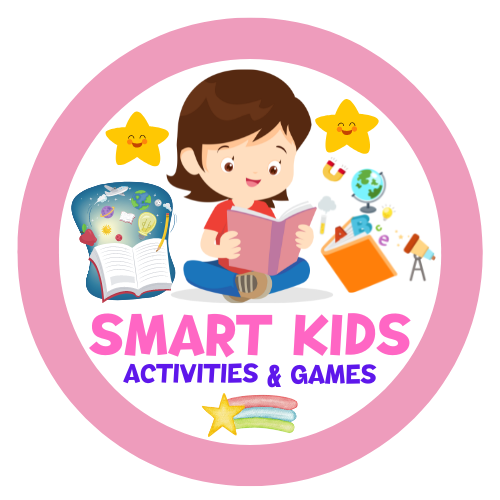Key Takeaways:
- Engaging in physical and mental exercises can enhance brain health and improve learning abilities.
- Getting sufficient sleep is crucial for optimal brain function and retention of information.
- Regular exercise, such as aerobic workouts and strength training, has numerous cognitive benefits.
- A brain-healthy diet rich in fruits, vegetables, and healthy oils can enhance cognitive abilities.
- Building and nurturing relationships improves problem-solving skills and various cognitive functions.
Get a Good Night’s Sleep
Getting sufficient sleep is crucial for optimal brain function. Research has shown that a solid seven to eight hours of sleep per night not only helps us feel rested and alert but also improves our ability to learn, concentrate, and retain information. A good night’s sleep provides numerous benefits for our brain health. It allows our brain to process and consolidate information from the day, leading to improved learning and memory. During sleep, our brain strengthens neural connections, enhancing our ability to focus and concentrate. Furthermore, sleep plays a vital role in maintaining overall brain health and preventing cognitive decline. Adequate sleep helps to reduce the risk of neurodegenerative diseases such as Alzheimer’s and improves cognitive function, including problem-solving skills and creativity. Not getting enough sleep, on the other hand, can have detrimental effects on our brain and cognitive abilities. Sleep deprivation impairs attention, memory retrieval, and learning, making it difficult to concentrate and retain new information. To ensure a good night’s sleep, it is essential to establish a regular sleep routine and create a sleep-friendly environment. Avoiding screens before bedtime, keeping the bedroom dark and quiet, and practicing relaxation techniques can contribute to a restful and rejuvenating sleep.“Sleep is that golden chain that ties health and our bodies together.” – Thomas Dekker
Engage in Regular Exercise
Regular exercise offers a myriad of cognitive benefits, making it an essential component of any brain-boosting regimen. Whether you prefer aerobic workouts, strength training, or activities like dancing or yoga, just 30 minutes of moderate exercise can have a remarkable impact on your brain processing speed and overall cognitive functions. Exercise Benefits:- Improves brain processing speed
- Enhances coordination and balance
- Boosts cognitive functions
| Exercise Type | Brain Benefits |
|---|---|
| Aerobic Workouts | Enhances brain processing speed and cognitive functions |
| Strength Training | Improves coordination, balance, and cognitive abilities |
| Dancing or Yoga | Enhances cognitive functions and promotes overall brain health |
Regular exercise is not just beneficial for physical health, but also plays a critical role in optimizing brain function. So, get moving and start reaping the cognitive rewards today!
Develop Good Nutritional Habits
Proper nutrition plays a vital role in maintaining brain health and optimizing cognitive abilities. Following a brain-healthy diet can provide essential nutrients that protect brain cells and support overall brain function. Here are some key components of a brain-healthy diet:- Eat plenty of fruits and vegetables: These nutrient-packed foods are rich in antioxidants, vitamins, and minerals that promote brain health and protect against oxidative stress.
- Incorporate fish rich in omega-3 fatty acids: Omega-3 fatty acids are essential for brain health and have been linked to improved cognitive function and protection against age-related cognitive decline.
- Include nuts and seeds: These powerhouse snacks are packed with essential antioxidants, healthy fats, and beneficial nutrients that support brain health and improve cognitive function.
- Choose healthy oils: Opt for olive oil and other healthy oils, such as avocado oil or coconut oil, which provide essential fats and nutrients that nourish the brain.
“The foods you eat can either be the safest and most powerful form of medicine or the slowest form of poison.” – Ann WigmoreWhile proper nutrition is essential, it’s also important to note that a brain-healthy diet should be combined with other lifestyle factors, such as regular exercise, quality sleep, and mental stimulation, for optimal brain health.
| Brain-Healthy Diet Components | Benefits |
|---|---|
| Fruits and vegetables | Rich in antioxidants, vitamins, and minerals that promote brain health and protect against oxidative stress. |
| Fish | Contains omega-3 fatty acids that support brain health and improve cognitive function. |
| Nuts and seeds | Packed with antioxidants, healthy fats, and beneficial nutrients that enhance brain health and cognitive function. |
| Healthy oils | Provide essential fats and nutrients that nourish the brain and support cognitive abilities. |
Foster Healthy Relationships
Building and nurturing relationships has a profound impact on the brain’s cognitive functions and problem-solving abilities. By actively engaging in conversations, fostering new relationships, and sharing laughter with others, we can unlock the full potential of our social connections and enhance our overall well-being.Benefits of Social Connections
Developing and maintaining healthy relationships provides numerous benefits for our cognitive functions:- Improved problem-solving skills: Collaborating with others and seeking different perspectives can spur creative thinking and lead to innovative solutions.
- Enhanced creativity: Interacting with diverse individuals stimulates our imagination and opens up new pathways for ideation.
- Increased emotional intelligence: Connecting with others on an emotional level improves our ability to understand and empathize with different perspectives.
- Stress reduction: Sharing thoughts and feelings with trusted individuals can alleviate stress and promote mental well-being.
“A true friend is someone who is there for you when they would rather be anywhere else.” – Len Wein
| Actions to Foster Healthy Relationships | Impact on Cognitive Functions |
|---|---|
| Engaging in meaningful conversations | Enhances communication skills and critical thinking |
| Participating in group activities and hobbies | Promotes collaboration, teamwork, and problem-solving abilities |
| Volunteering and helping others | Boosts empathy, compassion, and emotional intelligence |
| Celebrating milestones and sharing laughter | Reduces stress, enhances mood, and fosters a positive mindset |
Learn a New Skill
Learning a new skill is an excellent way to stimulate your brain and unleash your creativity. Whether you choose to play a musical instrument, learn a new language, or explore a new artistic pursuit, the process of acquiring new knowledge and honing your abilities has significant cognitive benefits. Engaging in a new skill activates various parts of the brain responsible for learning and memory. This stimulation strengthens neural connections, enhances cognitive functions, and improves overall brain health. Moreover, learning a new skill promotes creativity by challenging your brain to think in new ways and generate innovative ideas. It allows you to tap into your hidden talents and explore new avenues for self-expression. Additionally, developing a new skill often involves engaging fine motor abilities, such as playing an instrument or painting. These activities require precise movements and coordination, which further stimulate and exercise the brain.- Increased brain stimulation
- Enhanced creativity
- Improved fine motor abilities
- Enhanced overall cognitive functions
| Skill | Brain Stimulation | Creativity | Fine Motor Abilities |
|---|---|---|---|
| Playing a musical instrument | ✓ | ✓ | ✓ |
| Learning a new language | ✓ | ✓ | – |
| Trying a new artistic pursuit | ✓ | ✓ | ✓ |
Practice Mindfulness and Meditation
Mindfulness and meditation have gained popularity in recent years for their numerous benefits to brain health, including memory improvement and focus enhancement. These practices involve being fully present in the moment, paying attention to your thoughts and sensations, and cultivating a sense of calm and clarity. One of the key mindfulness benefits is its positive impact on memory. By practicing mindfulness, you can improve your ability to remember and recall information. Your focus and attention improve, allowing you to retain information more effectively. Meditation, on the other hand, trains your mind to concentrate and maintain focus. Regular meditation practice can enhance your ability to concentrate on a task, block out distractions, and stay present in the moment. This can be especially beneficial when studying or engaging in tasks that require sustained attention.“Meditation is not a way of making your mind quiet. It’s a way of entering into the quiet that’s already there – buried under the 50,000 thoughts the average person thinks every day.” – Deepak ChopraResearch has shown that mindfulness and meditation have a positive impact on overall brain health. These practices can reduce stress, which has been linked to cognitive decline and memory problems. By managing stress and promoting relaxation, mindfulness and meditation create a favorable environment for optimal brain function. To incorporate mindfulness and meditation into your routine, start by setting aside a few minutes each day to practice. Find a comfortable and quiet space where you won’t be disturbed. You can start with simple breathing exercises or guided meditation apps to help you get started.
Selecting the Right Meditation Practice for You
There are various types of meditation practices, and it’s important to find one that resonates with you. Whether it’s mindfulness meditation, loving-kindness meditation, or transcendental meditation, explore different techniques to discover what works best for you.| Type of Meditation | Key Features |
|---|---|
| Mindfulness Meditation | Focusing on the present moment, non-judgmental awareness of thoughts and sensations |
| Loving-Kindness Meditation | Cultivating feelings of compassion and love towards oneself and others |
| Transcendental Meditation | Repeating a mantra in a specific way to achieve a state of deep relaxation and inner peace |
Stay Organized
Research suggests that keeping our workspace organized and clutter-free can have significant benefits for our brain power. Organizing our surroundings helps to declutter our minds and enhances cognitive abilities.Engage in Expansive Thinking and Problem-Solving
Carving out time for expansive thinking and embracing innovative problem-solving techniques can have a significant impact on cognitive flexibility. By taking breaks and allowing ourselves to think through larger problems, we can devise alternative solutions and improve our critical thinking skills. Brainstorming sessions can stimulate creativity and unleash a flow of ideas, making it an effective technique for expanding our thinking. By encouraging the generation of multiple perspectives and exploring unconventional approaches, brainstorming enhances cognitive flexibility and opens up new possibilities.“Brainstorming is a powerful tool for unlocking creativity and thinking outside the box. By embracing the diversity of ideas and encouraging collaboration, it ignites cognitive flexibility and leads to innovative solutions.” – Dr. Emma Morrison, Cognitive Psychology ExpertCognitive flexibility, often associated with problem-solving abilities, is the mental agility to adapt and shift perspectives. It allows us to consider multiple viewpoints, analyze different options, and devise alternative solutions to complex problems. Engaging in expansive thinking exercises, such as puzzles, riddles, and strategy games, strengthens our cognitive flexibility and improves our problem-solving skills.
Fostering Cognitive Flexibility Strategies:
- Engage in brainstorming sessions to generate diverse ideas and explore alternative solutions.
- Tackle complex problems by breaking them down into smaller, more manageable tasks.
- Practice looking at situations from different perspectives and challenging preconceived notions.
- Seek out new experiences and expose yourself to different cultures, ideas, and viewpoints.
- Develop a growth mindset that embraces learning, adaptation, and flexibility.
Spend Time in Nature
Spending time in nature, even for short periods, can have a significant impact on brain health. The benefits of being in natural surroundings extend beyond the physical experience, positively influencing our attention, memory, and overall cognitive functions. Research has shown that immersing ourselves in nature reduces depressive activity in the brain, leading to improved mental well-being and a more positive outlook on life. The tranquility and beauty of natural settings have a calming effect on our minds, allowing us to unwind and recharge. In addition to the emotional benefits, spending time in nature can enhance our attention and concentration. When we are surrounded by greenery, fresh air, and natural landscapes, our brain switches to a state of relaxed focus, making it easier to concentrate on tasks and absorb information. Furthermore, exposure to nature has been linked to memory improvement. Taking a walk in a park or hiking through a forest stimulates the brain regions responsible for memory formation and retrieval. It also boosts creativity by providing a change of scenery and inspiring new ideas. So, whether it’s going for a hike, enjoying a picnic in the park, or simply taking a stroll in your neighborhood, make it a point to spend time in nature regularly. You’ll reap the benefits of reduced stress, improved attention, better memory, and enhanced cognitive functions.Make Time to Relax
Allowing our brain to relax and wander is essential for problem-solving skills. Taking time to daydream and engage in leisurely activities helps boost creativity and the development of new neural connections. When we step away from our daily routines and give ourselves the space to decompress, our brain can release stress and focus on generating innovative solutions. Engaging in activities like going for a walk in nature, practicing yoga, or simply sitting quietly with our thoughts can provide the brain with the much-needed relaxation it requires. Research has shown that relaxation not only reduces anxiety but also enhances our problem-solving abilities. When our mind is free from distractions, we can think more creatively and come up with unique solutions to complex problems. It’s during these moments of relaxation that our brain has the opportunity to process information and make unexpected connections.“Relaxation is not only about resting, but also about opening up our mind to new perspectives. It’s in these moments of calmness that we can tap into our problem-solving skills and find innovative solutions to challenges.”So, make it a point to set aside time for relaxation each day. Whether it’s spending a few minutes meditating, enjoying a hobby, or simply taking a break from work, prioritize brain decompression. By giving ourselves permission to relax, we can enhance our problem-solving skills, boost creativity, and foster the development of new ideas.
Conclusion
Incorporating these brain health tips into your daily routine can significantly enhance cognitive improvement and lead to long-term benefits. By prioritizing good sleep, engaging in regular exercise, and following a brain-healthy diet, you can maximize your mental output and protect yourself from the risk of dementia. Additionally, fostering healthy relationships, learning new skills, and practicing mindfulness and meditation contribute to overall brain health and function. Staying organized, promoting expansive thinking and problem-solving, spending time in nature, and making time to relax are all essential strategies for maintaining optimal brain health. This holistic approach not only improves learning abilities but also enhances creativity, memory, and attention span. By implementing these brain health tips into your daily life, you can cultivate a fulfilling and intellectually stimulating lifestyle. Remember, these strategies can be customized to suit your individual preferences and needs, allowing you to unlock your cognitive potential and enjoy the long-term benefits of a sharp and agile mind.FAQ
How can I improve my learning skills?
There are various ways to improve your learning skills. Some effective strategies include getting a good night’s sleep, engaging in regular exercise, adopting a brain-healthy diet, fostering healthy relationships, learning a new skill, practicing mindfulness and meditation, staying organized, engaging in expansive thinking and problem-solving, spending time in nature, and making time to relax.
What are the benefits of getting a good night’s sleep?
Getting sufficient sleep improves your ability to learn, concentrate, and retain information. It helps you feel rested, alert, and enhances your overall brain function.
How does regular exercise benefit the brain?
Regular exercise has numerous cognitive benefits. It improves brain processing speed, enhances coordination, balance, and other cognitive functions.
How does proper nutrition affect brain health?
Proper nutrition plays a vital role in brain health. Following a diet rich in fruits, vegetables, fish, nuts, and healthy oils can enhance cognitive abilities, protect brain cells, and improve overall brain function.
How do healthy relationships impact the brain?
Building and nurturing relationships have a positive impact on the brain. Engaging in conversations, fostering new relationships, and laughing with others can improve problem-solving skills, creativity, and various cognitive functions.
How does learning a new skill benefit us?
Learning a new skill stimulates various parts of the brain responsible for learning and memory. It enhances creativity, fine motor abilities, and overall cognitive functions.
What are the benefits of practicing mindfulness and meditation?
Mindfulness and meditation have positive effects on memory, focus, and overall brain health. They help reduce stress, improve focus, and boost memory.
How does staying organized benefit our brain power?
Research suggests that keeping our workspace organized and clutter-free can have significant benefits for our brain power. Organizing our surroundings helps to declutter our minds and enhances cognitive abilities.
How does expansive thinking and problem-solving impact cognitive flexibility?
Carving out time for expansive thinking and embracing innovative problem-solving can enhance cognitive flexibility. It improves critical thinking skills and allows for the development of creative solutions.
How does spending time in nature affect the brain?
Spending time in nature reduces depressive activity in the brain, improves attention, memory, and overall cognitive functions.
Why is it important to make time to relax?
Allowing our brain to relax and wander is essential for problem-solving skills. Taking time to daydream and engage in leisurely activities helps boost creativity and the development of new neural connections.
What are the long-term benefits of implementing these strategies?
By implementing these ten strategies to enhance brain health and improve learning skills, you can maximize your mental output, protect yourself from the risk of dementia, and lead a fulfilling and intellectually stimulating life.
Download free activities and teaching resources Click Here
You may also be interested in
AI in Kids Education: Trends & Benefits
Exploring Technology’s Role in Education Today
Unlocking Potential: A Guide for Every Substitute Teacher
Embracing Diversity: Importance of Inclusive Education
How to Celebrate Student Achievement: Creative Ideas
Source Links
- https://www.theneuroplan.com/blog/10-ways-to-enhance-your-brain/
- https://www.tenethealth.com/healthy-living/corporate-content/10-ways-to-improve-brain-health
- https://www.healthline.com/health/mental-health/brain-exercises






